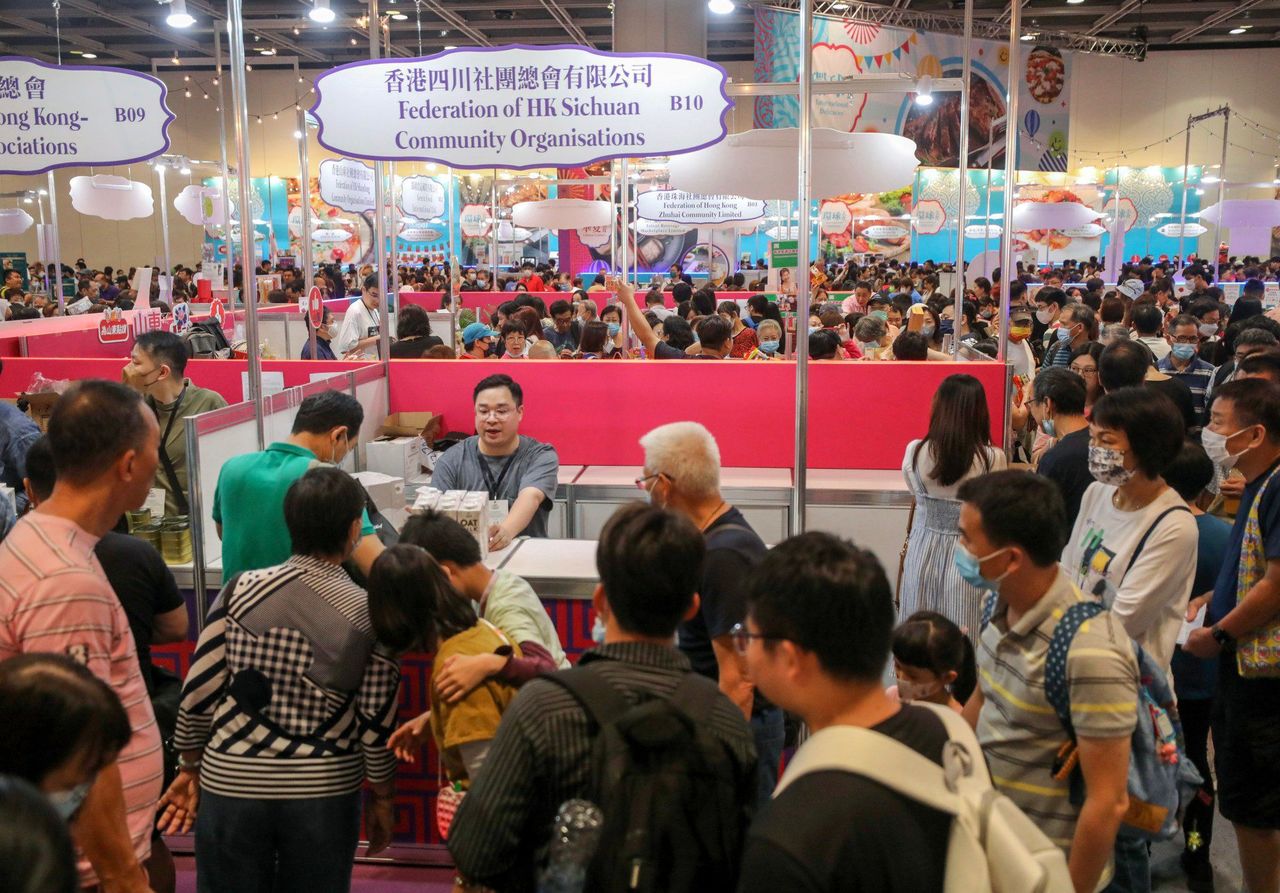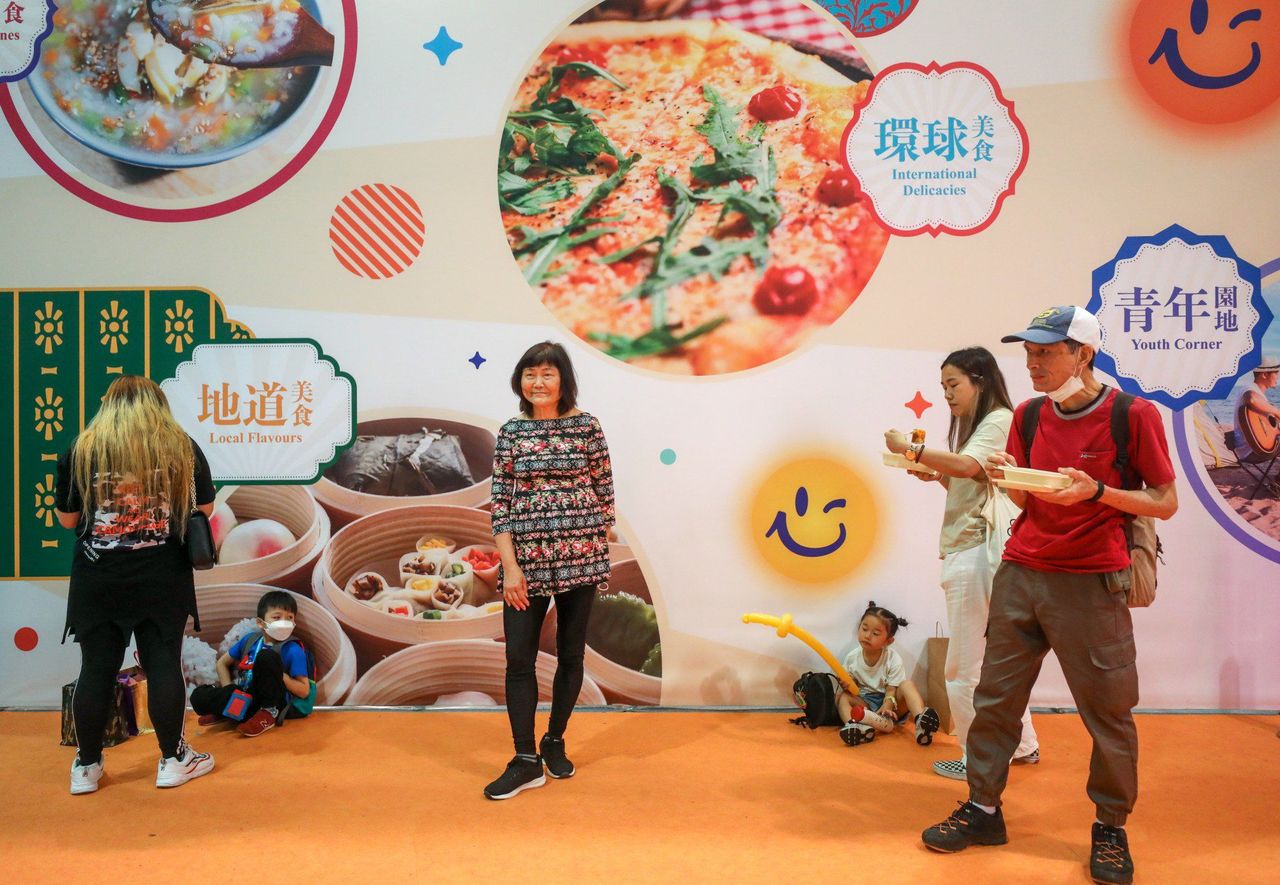Hong Kong News

‘Happy Hong Kong’ drive, e-vouchers to strengthen economic recovery: Paul Chan
The “Happy Hong Kong” campaign and spending vouchers earlier handed out to residents are set to consolidate the city’s economic recovery in the second quarter this year with an expected boom in domestic consumption, the finance chief has said.
Financial Secretary Paul Chan Mo-po’s optimism on Sunday was shared by some local economists, who estimated the city’s gross domestic product (GDP) could grow by as much as 5 per cent in the first quarter.
Chan also said the government was taking a “moderately liberal” fiscal stance this year after local retail sales increased for three consecutive months, with the total value reaching HK$33 billion (US$4.2 billion) in February.
Citing the citywide campaign launched on Friday and the release of the consumption vouchers earlier this month, Chan wrote in his blog: “[The two programmes] can help consolidate the economic recovery of the second quarter as well as the positive expectations of the market.
“Export performances in Hong Kong, as a fully open small-sized economy, are largely dominated by the external environment. But local consumption is an area that we can easily control when we are relatively more proactive.”
 The first “Happy Hong Kong” Gourmet Marketplace takes place at the Hong Kong Convention and Exhibition Centre.
The first “Happy Hong Kong” Gourmet Marketplace takes place at the Hong Kong Convention and Exhibition Centre.
Chan estimated this year’s HK$5,000 consumption voucher scheme, costing the government about HK$33 billion, could boost GDP by 0.6 per cent.
Since Hong Kong fully reopened the border in early February, the number of incoming visitors has risen steadily. He said the increase in tourists and improved retail sales would offset a weak export performance and underpin the economic improvement in the first quarter.
In the first quarter of 2023, the value of total exports decreased by 17.7 per cent over the same period in 2022. According to government figures, the value of imported goods also declined by 12.7 per cent.
“We will stay vigilant and positive to boost market confidence and residents’ hopes for an economic recovery through various measures within our capabilities,” he said.
The government is to release advance estimates on GDP for the first quarter on Tuesday and retail sales statistics for March on Thursday.
Professor Terence
Chong Tai-leung, executive director of Chinese University’s Lau Chor Tak Institute of Global Economics and Finance, estimated GDP could grow by as much as 5 per cent.
“It is partly due to the low-base effect – the reference point for which the comparison is made is low,” Chong said. “The opening of the border in the first quarter has also helped to revive the economy.”
Hong Kong’s GDP contracted by 3.9 per cent for the first quarter of 2022. Economic activities were first dampened by the fifth wave of Covid-19 cases at the start of last year and subsequently by the deteriorating external environment.
With the removal of coronavirus-related restrictions and social-distancing measures, the government has predicted a rebound in 2023, with GDP forecast to grow by 3.5 per cent to 5.5 per cent for the whole year.
Dr Thomas Yuen Wai-kee, an assistant professor at Shue Yan University’s department of economics and finance, predicted 4 per cent growth for the first quarter.
“With more tourists returning, we shall likely continue to see decent growth in the second quarter,” Yuen said.
He said that if Hong Kong entered the Regional Comprehensive Economic Partnership (RCEP) free trade agreement this year, it could help to reverse the economic slowdown.
RCEP comprises 15 Asia-Pacific economies, including all 10 Asean member states, with a market of some 3.5 billion consumers.
The “Happy Hong Kong” campaign includes a series of activities in the coming 10 months to boost post-Covid morale in the community and help to stimulate local consumption and the economy.
Among the highlights are a series of Gourmet Marketplaces organised by the Home Affairs Department, showcasing local, Chinese and international delicacies. The first of the series was held over the weekend at the Hong Kong Convention and Exhibition Centre in Wan Chai.
At the final session of the food fair in Wan Chai, some distributors were satisfied with their performance, including the long-standing Indian restaurant Gaylord in Tsim Sha Tsui, which operated a booth at the event.
Harshil Bhasin, director of operations at Silver Oak Hospitality Group, which owns Gaylord, said they had sold more than 2,400 khati rolls, 900 portions of biryani and 2,000 samosas during the two-day event.
 Visitors taste some of the food on offer at the first “Happy Hong Kong” Gourmet Marketplace.
Visitors taste some of the food on offer at the first “Happy Hong Kong” Gourmet Marketplace.
Bhasin noted the e-vouchers and the Happy Hong Kong initiative boosted consumption, with around 30 per cent of sales at the fair on Sunday made by Octopus cards, one of the options for receiving the government handout. Other choices, including Alipay and WeChat Pay, were also popular among customers.
“Give the public some vouchers, they will go and spend, and the government’s aim is definitely coming through,” he added.
Johnson Ho, a 50-year-old massage therapist, spent around HK$500 to HK$600 on soup packets, condiments and dried seafood.
He said he would be willing to spend on expensive items with the first tranche of consumption vouchers.
“The price of food here is much lower than I expected, no matter the items served here or the stuff that I bought,” Ho said.
As part of the citywide campaign, film tickets were offered to more than 200,000 residents at a flat price of HK$30 on Saturday.
The Hong Kong Theatres Association on Sunday reported that 220,000 people visited cinemas with the offer, triple the 76,000 who watched films the previous Saturday.
Provisional Hong Kong Tourism Board figures showed arrivals in March reached 2.45 million, a 68 per cent increase from the previous month. For the first three months of this year, Hong Kong recorded 4.41 million arrivals, or 30 per cent of the average quarterly figure before the pandemic.











